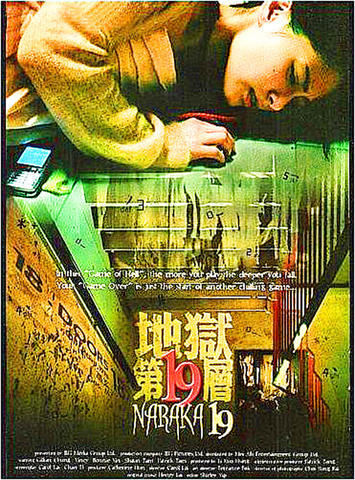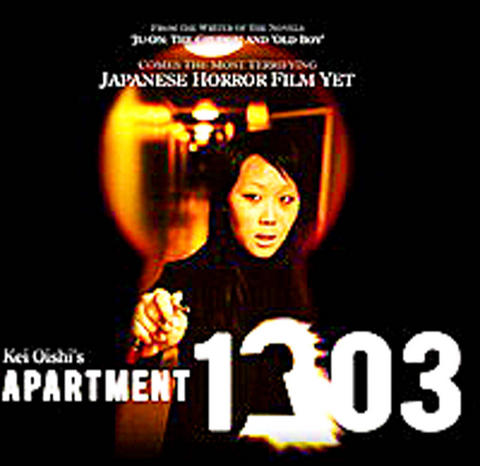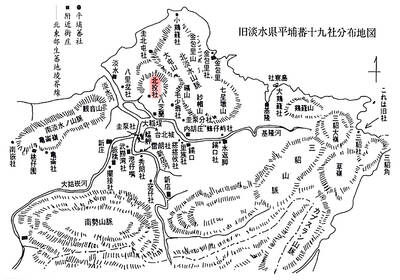The Romance of Astrea and Celadon
This is apparently the final film of 87-year-old French New Wave icon Eric Rohmer, and is being shown here straight after its European release. Based on a 17th-century novelist's idyllic tale of rural people and customs some 1,000 years earlier, Rohmer's stagey adaptation offers rustic romance with a touch of fantasy and even cross-dressing. Audiences unfamiliar with Rohmer's uncompromising filmmaking might find this one very odd.

Naraka 19
The title for this Hong Kong horror confection translates into The 19th Level of Hell. The Buddhist concept of hell has 18 levels, each with different punishment. In this case, however, some impressionable young Hong Kong women are about to stumble on an extra level via a demonic game. Based on an Internet novella by Cai Jun (蔡駿), Carol Lai Miu-suet's (黎妙雪) film did not make waves at home, but is notable for weaving text messaging and other marketable Internet-era diversions into its narrative.

Apartment 1303

Another movie with hellish stuff involving numbered titles and young women in supernatural peril, this time from Japan. A young woman suspects the death of her sister had more to it than high-density urban living, and moves into the apartment of the title. What follows is a retread of successful Japanese horror flicks in recent years - not to mention any number of Western shockers - and few reviewers have had anything good to say about it. Movie stills point to a low budget and no innovation.

Seven hundred job applications. One interview. Marco Mascaro arrived in Taiwan last year with a PhD in engineering physics and years of experience at a European research center. He thought his Gold Card would guarantee him a foothold in Taiwan’s job market. “It’s marketed as if Taiwan really needs you,” the 33-year-old Italian says. “The reality is that companies here don’t really need us.” The Employment Gold Card was designed to fix Taiwan’s labor shortage by offering foreign professionals a combined resident visa and open work permit valid for three years. But for many, like Mascaro, the welcome mat ends at the door. A

The Western media once again enthusiastically forwarded Beijing’s talking points on Japanese Prime Minister Sanae Takaichi’s comment two weeks ago that an attack by the People’s Republic of China (PRC) on Taiwan was an existential threat to Japan and would trigger Japanese military intervention in defense of Taiwan. The predictable reach for clickbait meant that a string of teachable moments was lost, “like tears in the rain.” Again. The Economist led the way, assigning the blame to the victim. “Takaichi Sanae was bound to rile China sooner rather than later,” the magazine asserted. It then explained: “Japan’s new prime minister is

NOV. 24 to NOV. 30 It wasn’t famine, disaster or war that drove the people of Soansai to flee their homeland, but a blanket-stealing demon. At least that’s how Poan Yu-pie (潘有秘), a resident of the Indigenous settlement of Kipatauw in what is today Taipei’s Beitou District (北投), told it to Japanese anthropologist Kanori Ino in 1897. Unable to sleep out of fear, the villagers built a raft large enough to fit everyone and set sail. They drifted for days before arriving at what is now Shenao Port (深奧) on Taiwan’s north coast,

Divadlo feels like your warm neighborhood slice of home — even if you’ve only ever spent a few days in Prague, like myself. A projector is screening retro animations by Czech director Karel Zeman, the shelves are lined with books and vinyl, and the owner will sit with you to share stories over a glass of pear brandy. The food is also fantastic, not just a new cultural experience but filled with nostalgia, recipes from home and laden with soul-warming carbs, perfect as the weather turns chilly. A Prague native, Kaio Picha has been in Taipei for 13 years and